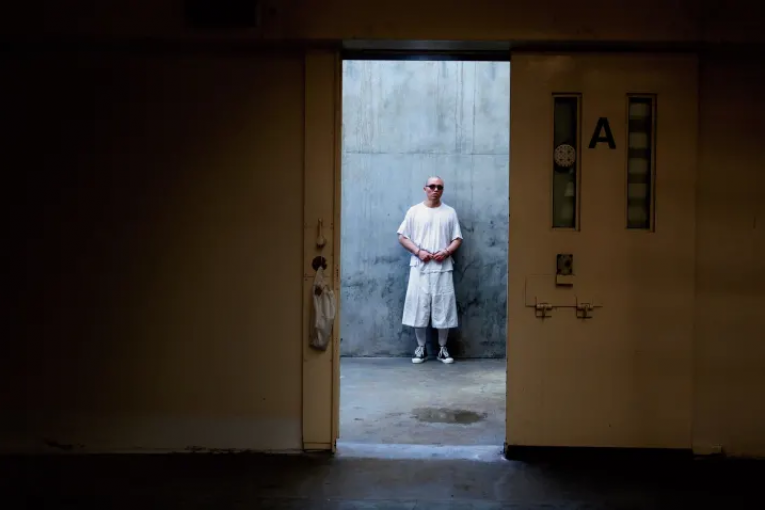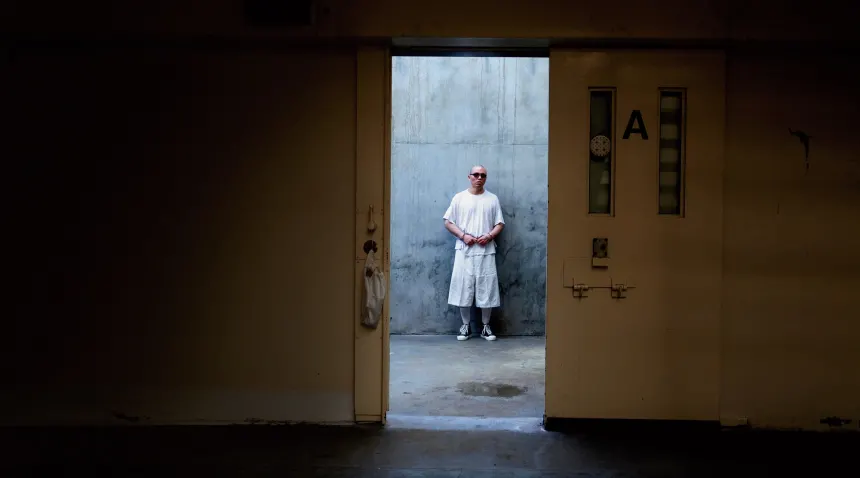


By Miguel Angel Silva
I arrived at Pelican Bay State Prison to serve a 23-year sentence, being convicted of voluntary manslaughter with street gang enhancements. I was a gang member from Los Angeles, and involved in criminal activity since as far back as I can remember.
When I arrived at PBSP, I was full of mixed emotions. In California, PBSP is the prison to go to for any criminal who wants to make a career of gang/prison politics. PBSP is the place to go to earn your stripes, your badge and a reputation. It’s the Harvard and Yale of prisons. I wanted to be there, and graduate with honors. That meant I would have to earn my place. To earn my place, I would have to catch more (added) time to my sentence for crimes I would have to commit in prison. This would mean I’d care more for a false family, my prison family, than I would for my own family who were supporting me constantly with finances as best they could. This dilemma of what to do was with me since the moment I was told I was going to Pelican Bay.
To a “normal” rational person, this may not seem like a reasonable dilemma at all. But to a person who has lived a life of criminality for the greater majority of his life, and to now be in Pelican Bay, the rationale for that person becomes lopsided to giving in to the things that may be. You’ve lived your life to get here. Everything has led to that moment. You feel as if you have earned it. It seems like an accomplishment, a privilege to be there. But, to accept that course in life, we all know the price.  Further limitations to your already limited freedoms, risk of life, safety, well-being and, ultimately, you may lose your family and yourself.
Further limitations to your already limited freedoms, risk of life, safety, well-being and, ultimately, you may lose your family and yourself.
My family was at the forefront of all I was not willing to lose, or cause more pain and suffering. As much as my criminal mind wanted to go to war, I just could not do that to my loved ones anymore. I made the choice to reform, and to rehabilitate myself and my cognitive behavior. I just didn’t know how to go about it, and prison systems thrive on that, but that would not stop me. I’ve traveled uphill most of my life. I keep walking and never give up.
I decided to step down form my position as a gang member of the Southern California Hispanic Security Threat Group within the California prisons. I informed the officers that I wanted to disassociate from any and all gang/prison politics, for my own safety. I was taken out of general population, and taken to the administrative segregation unit to be housed there pending an investigation to debrief.
While housed in the ASU, I didn’t have much in that small 9’ by 12’ concrete cell, but lots of time to think about what to do next. I always wanted to go to college. So that was a start. I just did not know how to go about it.
I was in my cell 24 hours a day and only came out three times a week for a couple hours at a time into a cage that’s fenced up, but outside. There is no contact with other prisoners. So everything we shared with each other we had to tie to a string and slide down to another cell, this is called fishing. Our fishing line is made with thread from our boxer briefs. We share. We share anything and everything from magazines to newspapers. In this process, I began accumulating addresses to colleges and universities. With this information, I began writing letters asking for information and assistance on how to get into college while incarcerated. I began drawing and selling artwork for stamps and stamped envelopes just to be able to contact all these places.
I didn’t really know what I was doing, but I was not born knowing anything and somehow managed to get things done in life. But this particular arena, trying to get into college, was really foreign. I wrote letters to the University of Mississippi, Ohio University, Boston U., University of North Carolina, and so many others. I wrote Christian Ministries, technical colleges and any other address I could get. Most never answered, some sent brochures that were of little help. Some said they didn’t offer courses to prisoners, but I could be eligible once I was out. I could not wait 25 years. I wrote many letters with no luck. Finally, I wrote the U.S. Department of Education and finally received the response I wanted. Donna Snoddy responded with words of encouragement, and offered to assist me. I found out I could get help through the education office at PBSP. They had an associates in arts degree program, but I had to have a GED or high school diploma. I sent in the form.
After three months in Ad/Seg, my disassociation was granted by the investigating panel. I was placed on a transfer list. All that work to get into college now seemed to be slipping away. I wrote the college coordinator and she told me to contact Feather River College in Quincy, California. I wrote them, but two weeks later I was transferred to Substance Abuse Treatment Facility in Corcoran, California. There I received a letter from Feather River and some forms to fill out.
In January of 2013, I was called to the program office where two ladies were waiting for me. One of the ladies handed me a stack of manila envelopes and two books. I asked, “What’s going on?” “These are all your course materials, textbooks, lecture notes…” the lady said. “Your college semester starts now.” What? I was in college? It turns out this lady was Kelly Conner, the coordinator of the Incarcerated Student Program at Feather River College. I was so excited I did not understand much of what she told me. Till this day that moment is a blur. I remember Kelly telling me she’d driven nine hours to get my materials to me, and that I was the first student on this yard to get into their program.
Feather River has given me the opportunity to regain myself, and the opportunity to gain a better understanding of the world through higher education. Feather River gave me the opportunity to rehabilitate myself, and to gain a sense of accomplishment in life, one course at a time.
This all comes to me thanks to Donna Snoddy, Kelly Conner, Dr. Joan Parkin, Dr. Michael Bagley, and everyone else who didn’t give up on me.
Republished from “Perspectives from the Cell Block: An Anthology of Prisoner Writings” – edited by Joan Parkin in collaboration with incarcerated people from Mule Creek State Prison.
